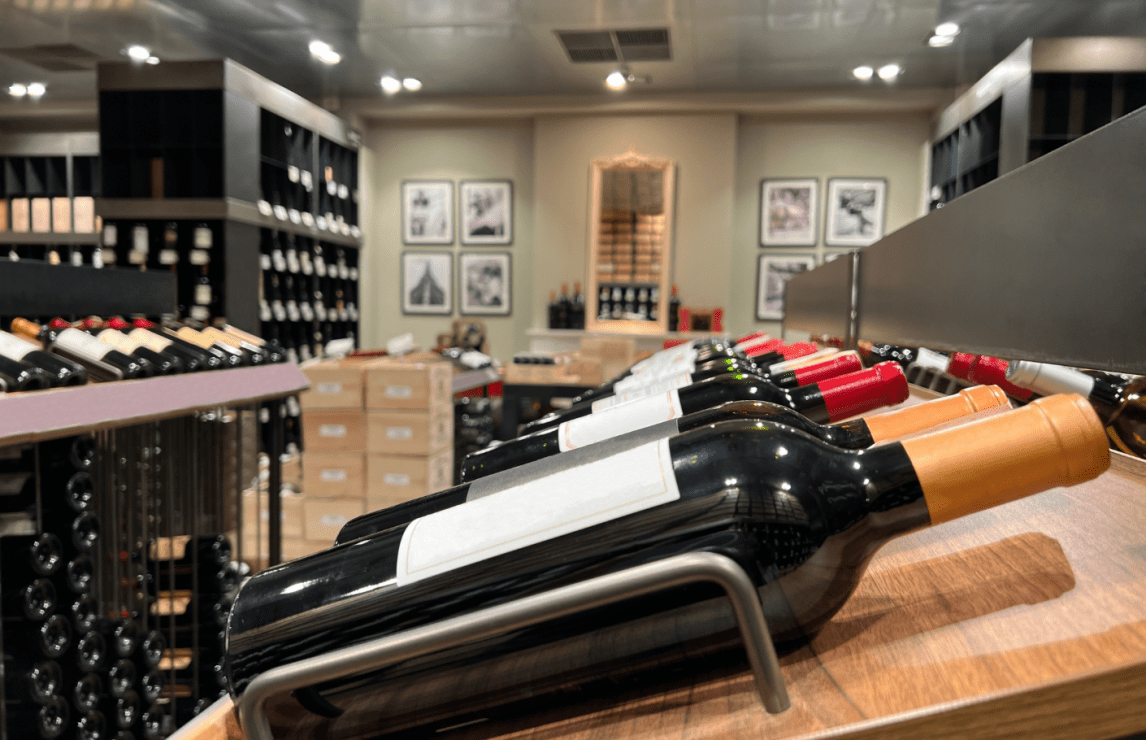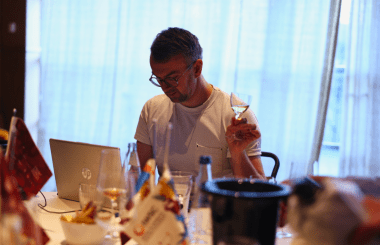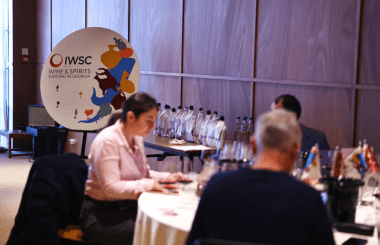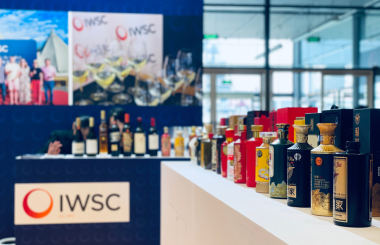Tailor-made labels: BevZero
With the unstoppable rise of the ‘nolo’ category, the expertise of dealcoholisation specialist BevZero has never been more in demand. We caught up with Director of Sales and Marketing EMEA, Irem Eren, and managing director for South Africa, Gustav Fouché, to get the lowdown on the firm’s white and private label programmes.
Wine is a notoriously slow-paced industry that demands the patience of a saint and nerves of steel come harvest time. But not all areas of the industry move sluggishly, and if you’re seeking to capitalise on the burgeoning ‘nolo’ movement and get an alcohol-free product to market quickly, then dealcoholisation specialist BevZero can fulfil that remit from brainstorm to bottle. With over 30 years of experience in dealcoholisation and over 15 in the no and low sector, BevZero is a world leader in providing its clients with high quality low and no-alcohol products through its patented dealcoholisation equipment and vacuum distillation technology.
Working with a team of dedicated winemakers, brewers, distillers and food scientists, the firm has offices in California, Spain and South Africa, allowing it to serve as a one-stop shop for drinks brands of all sizes seeking to bottle their big idea. Since its inception, BevZero has been fine-tuning its tech in order to create expressive 0% ABV wines that are full of flavour and character.
The firm uses low temperature vacuum distillation technology, which allows for the gentle removal of alcohol while preserving and reusing nearly 100% of the aromas and flavours that can be added back to the de-alcoholised fraction to retain the original characteristics of the wine in the finished product. The secret, according to Gustav Fouché, BevZero’s managing director for South Africa, is to begin with a high quality, fruit-forward, full-bodied wine with transferable flavours. “The quality of the wine that you start with is really important,” he says. “It has to have a good nose and fruit on the palate. Certain characteristics translate better into alcohol-free wines, and fruiter wines tend to work best.”
Fast-track service
For estates seeking to add an alcohol-free wine to their range, BevZero’s white label programme is a fast-track service for time-sensitive clients keen to make waves in the market. BevZero takes control of the whole process, and is responsible for everything from sourcing the wine and conceptualising the product to the dealcoholisation and bottling. Covering all bases, its white label wines include an alcohol-free red, white, rosé and sparkling, which can be bottled or canned.
“The beauty of our white label programme is the speed at which we can get a new product to market, which can be as quick as three weeks and no longer than six weeks,” says Irem Eren, BevZero’s Director of Sales and Marketing for Europe the Middle East and Asia. “It’s an ideal option for wineries looking to rapidly enter new markets with a new brand.”
Bespoke offering
The firm also works with clients on bespoke private label products, which are ideal for wineries that need to hit the ground running with a customised alcohol-free brand. Partnering with key industry supply chain leaders to develop a streamlined approach to bringing new 0% ABV brands to market, BevZero takes the hassle out of wine sourcing and product development, delivering quality alcohol-free wines ready to be labelled and fast-tracked onto the market. “We offer this service in Spain, the US and South Africa,” says Eren.
“We work with wineries and brand owners to create unique private label products from scratch, offering a turnkey service that includes everything from wine sourcing and providing data and insights on consumer markets, to product development, the dealcoholisation process and the final bottling. It’s a tailor-made offering – the client owns the IP of the formula and can be as hands-on in the process as they like.” The service is ideal for smaller firms seeking to test their new products in the international market.“We play in a different space to the traditional wine industry and identify new growth areas and opportunities to push new products,” says Fouché. “For small wineries that can't afford to do large bottling runs, we’re able to offer runs of a few thousand bottles so that they can grow their brands sustainably, meaning there are less barriers to entry.”
From €5 entry-level wines to €35 premium expressions, among the nolo wines on offer within BevZero’s private label range are a 0% ABV Provence-style rosé and sparkling rosé from Spain; a 0% ABV NZ Sauvignon Blanc-style white; an alcohol-free Prosecco-style fizz; a French oak-aged 0.5% ABV California Chardonnay that undergoes battonage and lees-stirring; and a 0.5% ABV South African Pinotage. “We help our clients to think outside of the box, as they may not realise that they can create RTDs and functional beverages with our products,” says Eren, who was happy to see an area at ProWein this year dedicated to alcohol-free wines, which proved popular during the show.
Tapping into new markets
With the current surplus of wine sloshing about, Fouché believes bulk producers have a golden opportunity to create alcohol-free products from their excess stock. “There has been a glut of wine in Australia in recent years due to a cooling of interest from China,” says Fouché. “This has provided an opportunity for the country to tap into the nolo movement and market its wines in a new way to a new audience where they can still get a premium for them, as most alcohol-free wines are priced at a premium.”
As a growing number of consumers seek to curb their alcohol consumption, the nolo movement is now a global phenomenon, offering winemakers an exciting opportunity to enter a dynamic market. “The nolo category gives wineries, as well as brand owners, negotiants and large retailers, the chance to play in a compelling new field and reach a younger generation of consumers,” says Eren. “There are duty benefits to producing nolo wines, which are also being harnessed by spirits producers and used as a base ingredient in their gins and vodkas. While most actors are still smaller producers at the moment, the bigger players are rapidly moving into the space and are hungry for a slice of the pie.”



